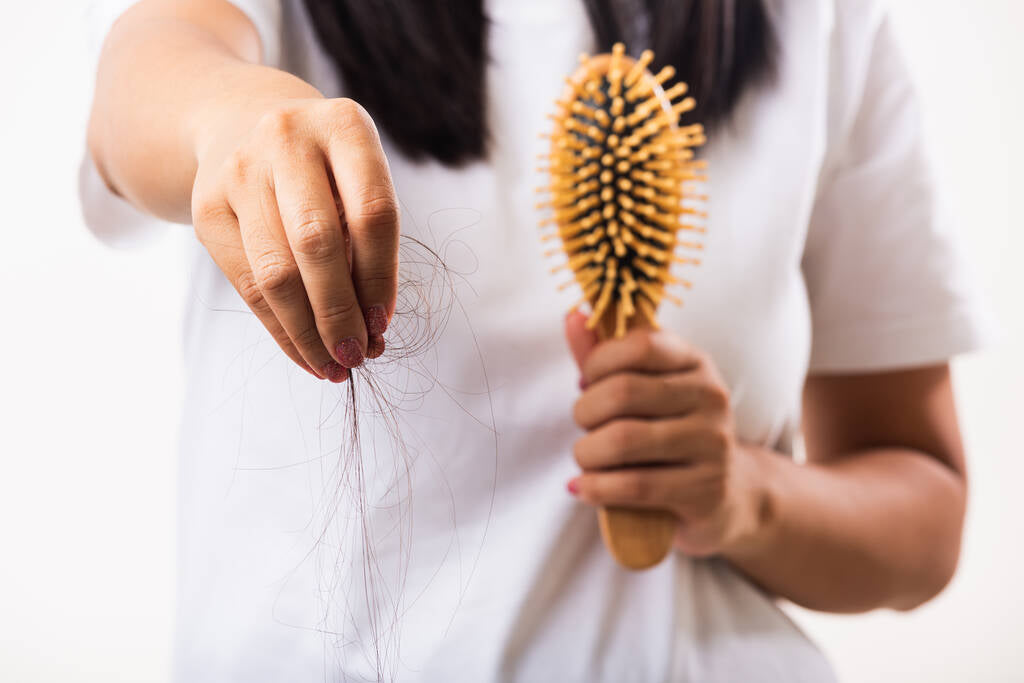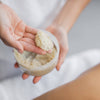Tackling Hair Loss: Prevention and Care

Seeing more hair on your brush or in the drain can be unsettling, but don’t fret. There are several ways to tackle hair loss prevention and restore your hair’s vitality.
At Jericho Skincare Australia, we know that your hair is a big part of your identity and self-esteem. Whether you’re dealing with seasonal shedding, genetic factors, or lifestyle-related issues, we’re here to offer insights & solutions that align with your needs. Here are some practical tips to reduce hair loss and keep your locks healthy and strong!
How to Prevent Hair Loss with a Healthy Diet
Make nutrient-rich foods a regular part of your hair loss prevention diet! Studies suggest a Mediterranean diet, packed with raw veggies and fresh herbs like parsley, basil, and salad greens, might help reduce the risk of androgenic alopecia or slow its progression.
The best results were seen in people who enjoyed these foods more than three times a week. So, try the Mediterranean, and fill your plate with delicious ingredients that deliver hair-boosting nutrients.
Hair follicles are primarily composed of keratin, so a lack of the amino acids needed to produce this protein can result in hair loss. Enhance your hair health by eating protein-rich foods like eggs, nuts, beans, fish, low-fat dairy, chicken, and turkey.
Vitamin A is important for healthy hair because it has retinoids that foster healthy cell turnover and maintain hair follicles in excellent condition. This enhances overall hair strength and vitality. To reap these benefits, include more vitamin A-rich foods like:
- Sweet potatoes
- Sweet peppers
- Carrots
- Spinach
Boosting Hair Health with Supplements
Certain vitamins and minerals are vital for hair growth, especially those that support cell turnover. These key nutrients include:
- Vitamins A, B, C, and E
- Biotin (vitamin B7)
- Iron
- Selenium
- Zinc
While multivitamins with these nutrients are widely available, consult your doctor for personalised advice before starting any new supplement regimen.
There’s growing evidence that links vitamin D deficiency with hair loss conditions like alopecia and thinning. Alongside supplements and a good diet, getting some sun can also boost your vitamin D levels.
Saw palmetto, derived from American dwarf pine trees, may help balance testosterone levels and improve hair density. Daily doses of 100 to 320 milligrams are recommended, particularly for cases of androgenetic alopecia.
Update Your Hair Care Routine
Besides dietary adjustments and supplements, updating your hair care routine can help you manage your hair loss better. Consider incorporating the following practices:
- Regular Washing: Cleanse your scalp daily with a nourishing shampoo to prevent build-up and hair loss. Go for formulas that preserve natural oils to avoid dryness and breakage.
- Coconut Oil: Protect your hair from damage with coconut oil. Its lauric acid helps to bind with hair proteins, reducing breakage. Massaging it into your scalp also enhances blood flow and supports hair growth.
- Gentle Styling: Traction alopecia happens when constant tension on the hair follicles leads to damage and hair loss. So, avoid hairstyles that pull on your roots, such as tight braids or ponytails.

Hair Loss Prevention for Men
The search for effective hair loss treatment in women reveals solutions that blend natural ingredients with advanced scientific research. But what about hair care for men?
Up to 50 per cent of men show some degree of male pattern baldness by the time they reach 50. While there isn’t a universal hair loss cure for men, advancements in treatments like finasteride and minoxidil show promising results.
Hair Loss Medications:
- Minoxidil is an over-the-counter hair loss treatment available in liquid and foam forms. It works by increasing blood flow to hair follicles and extending the hair growth phase. You apply it directly to your scalp daily.
- Finasteride is a prescription medication designed to tackle hair loss by blocking DHT, the hormone linked to thinning hair. It can slow down or even reverse hair loss over time. Note that it may take up to 12 months to see noticeable results, and there are potential side effects to consider.
If you’re considering medications or medical treatment for hair loss, consult a dermatologist or trichologist to explore the most appropriate options for your condition.
Alternative Methods to Support Hair Growth
In addition to dietary changes and medical treatments, several alternative methods can complement your hair care routine:
Essential oils offer a natural approach to addressing hair loss. Recent research suggests that oils like chamomile, thyme, and tea tree could help with alopecia areata, androgenetic alopecia, and psoriatic alopecia. Other essential oils worth considering include lavender, lemongrass, and peppermint oil.
- Blend a few drops of essential oil with a carrier oil like jojoba oil or grapeseed.
- Apply it to your scalp, leave it on for about ten minutes, and rinse thoroughly.
- Be sure to do a patch test first to check for allergic reactions.
Beyond the relaxation it provides, scalp massage might encourage hair growth. A small study revealed that participants who engaged in just four minutes of scalp massage each day for 24 weeks observed positive changes. While the study was limited, it suggested regular massage could contribute to thicker hair over time.
If stress affects your hair, yoga might be a great help! Certain poses are known for reducing stress and could slow or prevent hair loss by easing stress levels and promoting relaxation. Adding these poses to your routine might benefit your mental well-being and hair health.
Understanding Hair Loss Triggers
Some hair loss may be temporary and improve with diet or treatment. However, if it continues, it might signal a more serious health issue. Common hair loss causes include:
- Medical conditions like autoimmune disorders, thyroid imbalances, nutritional deficiencies, or fungal infections on the scalp
- Physical and emotional stress
- Hormonal changes
- Harmful styling practices like excessive heat use, tight hairstyles, and chemical treatments
- Medications and treatments like corticosteroids, blood pressure medications or chemotherapy
When to Seek Help?
Hair naturally cycles through phases of growth, rest, and shedding. Shedding about 100 hairs daily fits within the normal hair cycle, but losing significantly more might call for a visit to a trichologist or healthcare provider to exclude any underlying conditions.
Seek professional help if your hair loss persists despite these efforts or is accompanied by other symptoms. Talking to a dermatologist or a trichologist can provide a comprehensive evaluation and help you explore advanced treatment options for your specific condition.
Explore Jericho Skincare Australia’s Premium Hair Care Collection
If you want to start tackling hair loss by building a better hair care routine, explore Jericho Skincare Australia. We offer a range of haircare solutions for nourishing, protecting, and restoring your locks! Our products boast a blend of Dead Sea minerals, potent plant extracts & other luxurious ingredients known for their revitalising properties.
Visit our shop today to find the perfect solutions for your needs! And if you’re seeking ways to soothe your scalp or tips on managing curly hair, head to our blog for more insights and expert advice!






